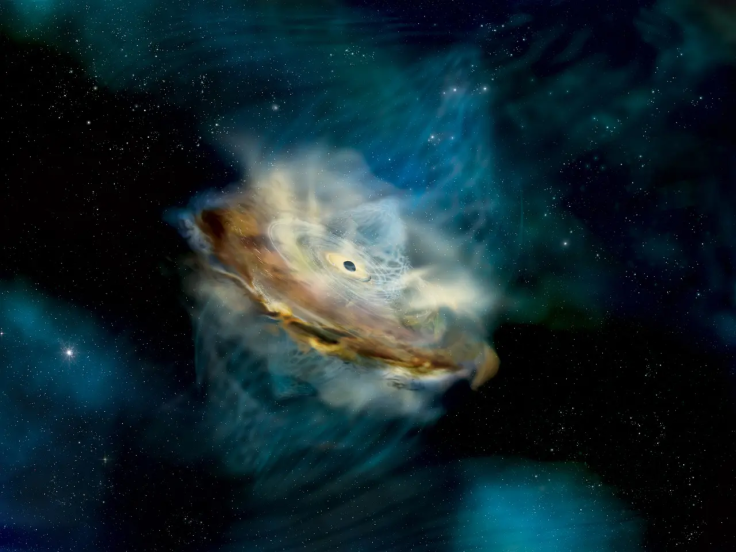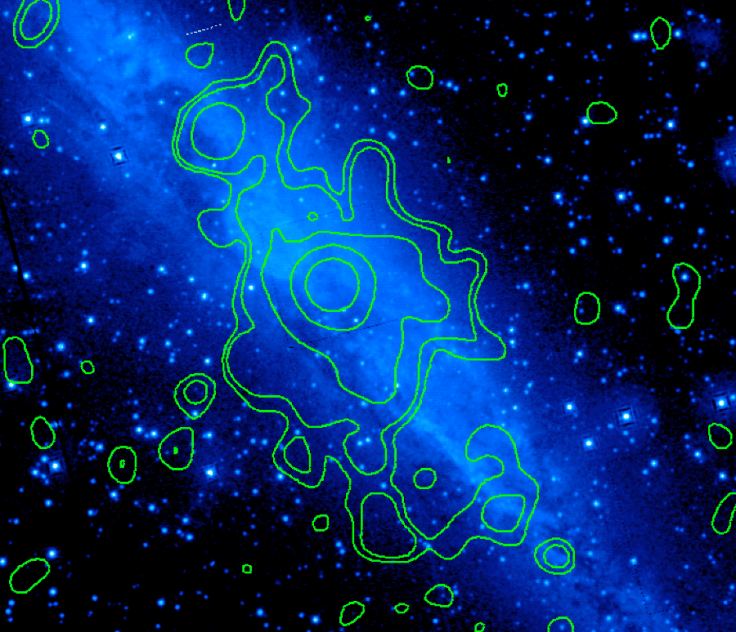NASA scientists were just able to observe cosmic fuels from a supermassive black hole that happened 5 million years ago.

Researchers at the Goddard Space Flight Center detected the fossils as giant gas clouds near the spiral galaxy NGC 4945 13 million light-years away from Earth.
Thanks to NASA's Chandra X-ray Observatory, the gas clouds were identified as remnants of jet particles released from the black hole's center when it erupted millions of years ago.

Even now, the cold gas clouds are continuously being pushed through the galaxy as the NGC 4945 keeps releasing "superpowered wind."
The cosmic fuels are expected to help scientists better understand the connection between black holes and the origin of galaxies.
About the NGC 4945 Spiral Galaxy
First discovered by Scottish astronomer James Dunlop in 1826, the NGC 4945, or Caldwell 83, galaxy is a starburst galaxy that produces stars and celestial bodies faster than ours.
Scientists estimate that the galaxy produces 18 Sun-like stars every year, three times faster than the Milky Way galaxy.
Due to its active nature, NGC 4945 regularly produces high-powered emissions that spread throughout space and help scientists create temperature maps on the cosmic giant.
The spiral galaxy has been a common subject for NASA's studies thanks to its "tilted nearly edge-on" angle towards Earth, allowing scientists to have a better look at its activity and composition.
NASA Anticipates for More Breakthrough in 2024
With the work efforts NASA has put in 2023, the US space agency expects more scientific breakthroughs this year.
NASA has already even mapped out all the major space events happening in the following months, including exclusive looks into celestial bodies in our Solar System.
This is not to count the Artemis lunar mission that NASA has been preparing for a long time.
The manned moon landing is set to be NASA's first attempt to bring astronauts back to the moon for nearly four decades.
Related Article : NASA Unveils Trailer for Major Space Events in 2024









